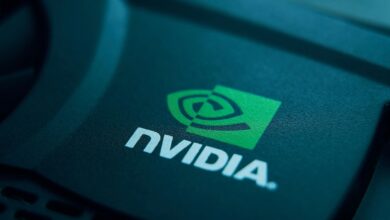This Is How To Exchange Damaged Banknotes At The Bank Near You
Even with the impressive rise in e-payments, there are still many situations in which actual money is required. Notes that are ripped or filthy may sometimes be received via bulk payments, ATMs, or other sources. Under these circumstances, people would try to use them covertly, either by putting them in a bundle of bills or using them in the everyday exchange of goods at nearby marketplaces, such vegetable markets.

However, a large portion of people are still ignorant that the Indian financial system makes it possible to exchange damaged banknotes. Regarding this, the Reserve Bank of India has issued clear rules.
The RBI has listed many types of currency note damage along with the steps involved in replacing them in the rules for exchanging dirty and damaged notes.
How Can Damaged Bank Notes Be Exchanged?
soiled notes
Notes that have become soiled and somewhat torn are referred to as soiled notes. Notes with two ends numbered, that is, notes with two pieces and denominations beyond Rs. 10 are also considered dirty notes.
Swapping of dirty notes
However, the cut in these notes shouldn’t have gone through the number panels. Any counter in a public sector bank, a private sector bank’s currency chest branch, or an RBI issue office is where you may exchange all of these notes. To achieve this, no forms need to be filled out.
How may damaged banknotes be exchanged?
distorted notes
It’s also possible to swap out notes that are fragmented or lack certain crucial parts. The name of the issuing authority, the guarantee, the commitment clause, the signature, the Ashoka Pillar insignia (a picture of Mahatma Gandhi), and the watermark are all necessary components of a banknote.
Replacement of damaged banknotes
However, the RBI (Note Refund) Rules are followed in paying the refund value of these notes. These may also be exchanged without filling out any forms at the counters of any public sector bank branch, any private sector bank’s currency chest branch, or any RBI issuing office.
Additional exchange facilities
Triple Lock Receptacle, or TLR
TLR (Triple Lock Receptacle) covers are another way that the exchange facility for damaged notes is provided for the convenience of the general public. Individuals can obtain a TLR cover from the Reserve Bank’s Enquiry Counter. They can then fill it out with their notes, including name, address, and the denominations of the notes deposited, close it, and deposit it in a Triple Lock Receptacle box in exchange for the issuance of a paper token.
This box is located at the inquiry desk at every Reserve Bank issuing office. Payment for the damaged notes will be made via a pay order or bank draft for the permissible exchange value. Additionally, tampered notes may be sent by registered or insured mail to any RBI office.
really filthy, fragile, and burned notes
Only at the RBI’s issuing office may notes that have become very dirty, brittle, or burned and cannot sustain regular handling be replaced.
Carefully clip your notes
If the notes are offered for payment of exchange value and it is discovered that they have been purposefully ripped, folded, tampered with, or manipulated, they will be refused.
The RBI has clarified that while it is impossible to define intentionally cut notes with precision, a close examination of such notes will identify any intentional fraudulent intent because the way the missing portions of the notes are mutilated follows a broad uniformity, particularly when the notes are tendered in large quantities.
Additional guidelines
Small amounts of notes presented: Banks shall exchange small amounts of notes, up to twenty pieces totaling no more than Rs 5,000 each day, for free over the counter.
Notes delivered in bulk: Banks may accept notes, subject to receipt, for value to be reimbursed later, if an individual presents more than 20 pieces of notes or Rs 5000 in value per day. Banks are able to charge for services.
RBI locations that provide trading services
At the RBI’s Regional Office counters in Ahmedabad, Bangalore, Belapur (Navi Mumbai), Bhopal, Bhubaneswar, Chandigarh, Chennai, Guwahati, Hyderabad, Jaipur, Jammu, Kanpur, Kolkata, Lucknow, Mumbai, Nagpur, New Delhi, Patna, and Thiruvananthapuram, as well as at a currency chest run by the Bank in Kochi, the facilities are offered.







